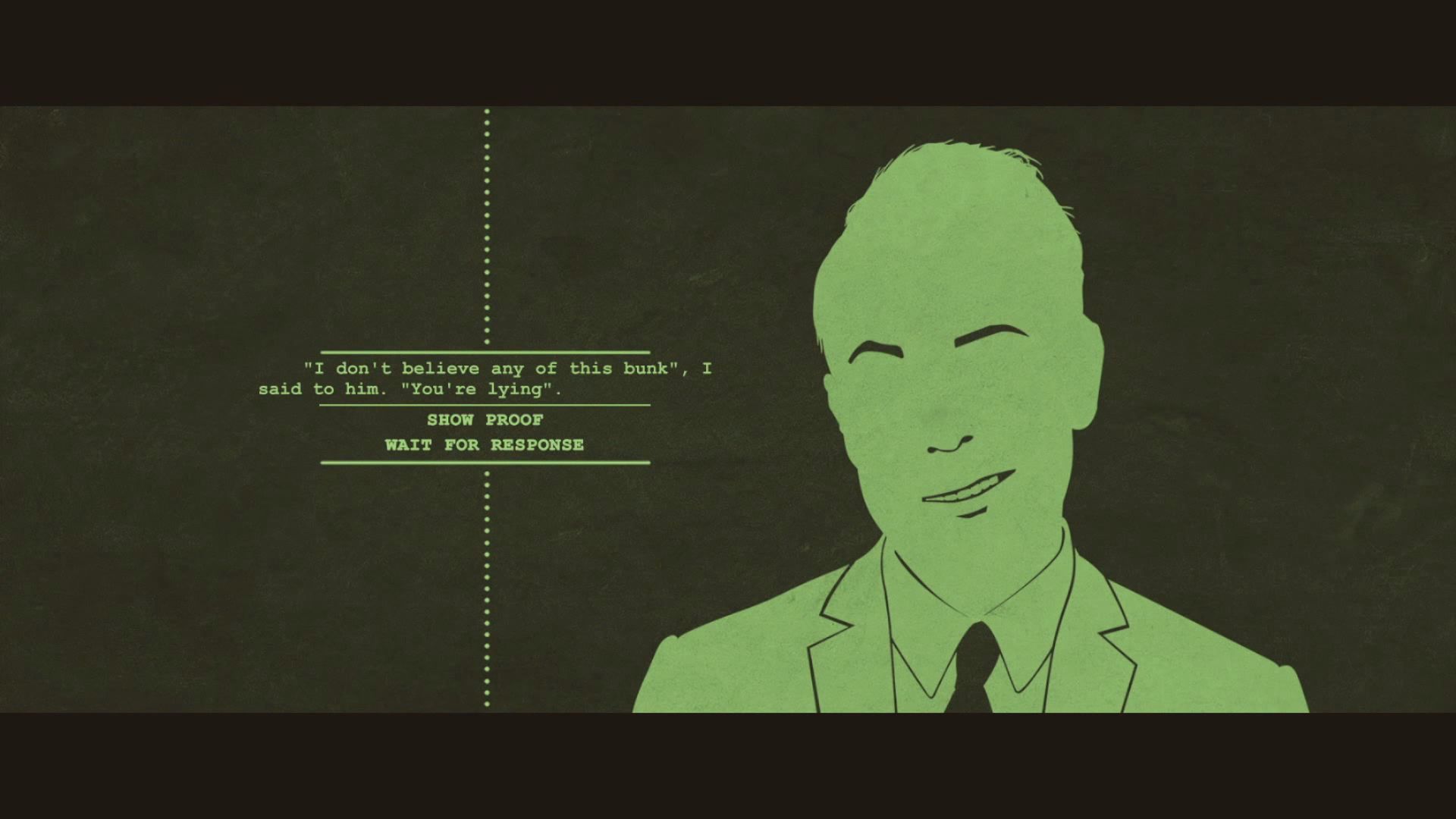A Case of Distrust is an adventure game made of silhouettes set in 1920s San Francisco
The point-and-click mystery is on show at Indiecade 2017.

For a game that’s almost entirely driven by text, it’s surprising how evocative A Case of Distrust can be. Structurally it’s a pulpy, 1920s detective story set in smoky San Francisco. You’re a private eye who’s been off the beat for far too long, so instead of a bloody glove or a smoking gun, the game opens with you trying to use your sleuthing skills to convince your cat that there isn’t any food left in the office. I swung open the yellowed refrigerator door, he begrudgingly acquiesced.
All of this action happens in a beautiful, effortlessly stylish storybook. The best comparison might be an animated Bond movie opening, blown out into a full game. The player-character never appears on-screen: instead you point-and-click your way through dozens of static, diorama-esque environments rendered in stunning two-dimensional noir silhouettes.
That might sound kind of static and boring, but trust me, A Case of Distrust’s biggest strength is its restraint. It perfectly mirrors the vintage cloak-and-dagger tone of the narrative, which is made even more potent by the quietly tense cocktail-lounge jazz soundtrack.
"I was in triple-A before this, I worked at Visceral Games and Bioware before that, but I jumped ship from triple-A and I’ve always loved narrative games—especially adventure games, like the old LucasArts is some of my favorite stuff," says Ben Wander, designer and author of A Case of Distrust. "Leading up to development I was playing games like Gone Home and Firewatch, and a big influence is 80 Days."
One of the older games Wander cites is Phoenix Wright, specifically the mechanic of scrubbing an environment for evidence and using your newfound discoveries for a big, fuck-you endorphin rush when you call out your objection in the court of law. A Case of Distrust isn’t quite that bombastic, but you are a detective, and you do get to confront chumps with compromising facts.
That feels pretty good (that will always feel pretty good), but when I ask Wander where he thinks the seriousness of his story’s tone lands, he says it’s more The Long Goodbye than Pink Panther.
"I want to tie the 1920s back to our contemporary era—the emancipation of women, the prohibition of alcohol and how that relates to the prohibition of marijuana these days," says Wander. "You’re playing a woman who’s a detective, and that impacts the game in interesting ways because people don’t trust you that much to begin with—just because of that, not because of your detective skills. It’s about realizing that some of this stuff has been going on for a while. You’ll have conversations about immigration, and how the first anti-immigration laws were coming out in the '20s."
The biggest gaming news, reviews and hardware deals
Keep up to date with the most important stories and the best deals, as picked by the PC Gamer team.
Wander tells me that there’s about 40,000 words baked into A Case of Distrust, chronicling everything from grisly crime scenes to taxi-cab banter. It’ll be out either late this year, or early next year.
We're at Indiecade in LA this weekend, checking out everything the festival has to offer. Click here for more of our stories from the event.

Luke Winkie is a freelance journalist and contributor to many publications, including PC Gamer, The New York Times, Gawker, Slate, and Mel Magazine. In between bouts of writing about Hearthstone, World of Warcraft and Twitch culture here on PC Gamer, Luke also publishes the newsletter On Posting. As a self-described "chronic poster," Luke has "spent hours deep-scrolling through surreptitious Likes tabs to uncover the root of intra-publication beef and broken down quote-tweet animosity like it’s Super Bowl tape." When he graduated from journalism school, he had no idea how bad it was going to get.

